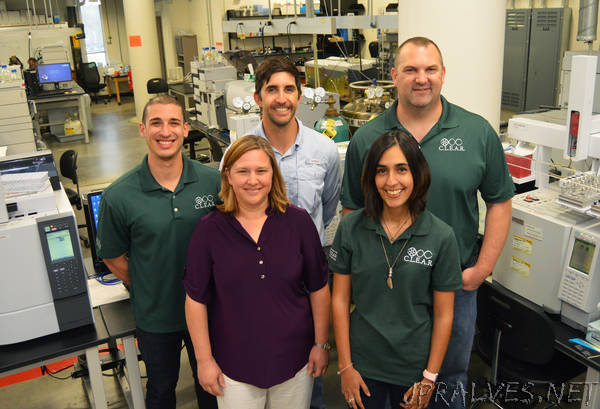
“The Collaborative Laboratories for Environmental Analysis and Remediation at The University of Texas at Arlington has expanded its partnership with oil field equipment supplier Challenger Water Solutions to develop water recycling technologies that will transform waste from unconventional oil and gas development into reusable water.
This collaboration has already resulted in a study published in the journal Science of the Total Environment, where CLEAR evaluated a modular, multi-step water treatment system designed by CWS within the contexts of reuse for production well stimulation. The CLEAR research team determined that under a wide range of conditions, multiple treatment modalities were required to remove pertinent contaminants, the presence of which can preclude oilfield waste from being recycled and reused.
“As hydrocarbon extraction has expanded considerably across Texas, particularly in western Texas, so too has the reliance on fresh water resources to facilitate the stimulation of production wells,” said Kevin Schug, interim associate dean of the College of Science and Director of CLEAR. “This has provided a tremendous impetus for the recycling and reuse of produced waste, both of which are very difficult to accomplish effectively and economically given the physiochemical complexities of these waste solutions.”
“Through this partnership with Challenger Water Solutions, we have been able to assess important organic, inorganic and biological constituents throughout the multi-step process, whereby we found that waste streams could be transformed into a resource for reuse by the oil and gas industry,” he said.
“UTA’s ongoing efforts will include developing therapies for the treatment of harmful bacteria in the water that are resistant to traditional forms of disinfection,” added Dr. Zacariah Hildenbrand, co-founder and scientific contributor to CLEAR. A sponsored research agreement, the second within a year, from CWS to CLEAR, will pave the way for the development of new technology.
“Sulfate-reducing and iron-oxidizing bacteria are just two classes of bacteria that can wreak havoc in the oil and gas industry,” Hildenbrand said. “Bacterial contaminants can produce biofilms and corrosive agents, which can affect production and deteriorate infrastructure. The targeted chemical-free treatments that we are developing will not only ensure that recycled produced water is reusable, but they may also enhance oilfield recovery in production wells where biofouling is problematic.”
“The dynamic variable of produced water requires the best and brightest to break the barriers of cost, quality and consistency. Challenger Water Solutions has received validation and an expanded technology portfolio through the revolutionary thinking and expertise of UTA’s multidisciplinary team,” said Joel Warner, Technology Development Lead at Challenger Water Solutions.
“These efforts clearly have tremendous implications in terms of greater environmental stewardship within the oil and gas industry,” Schug concluded.”
